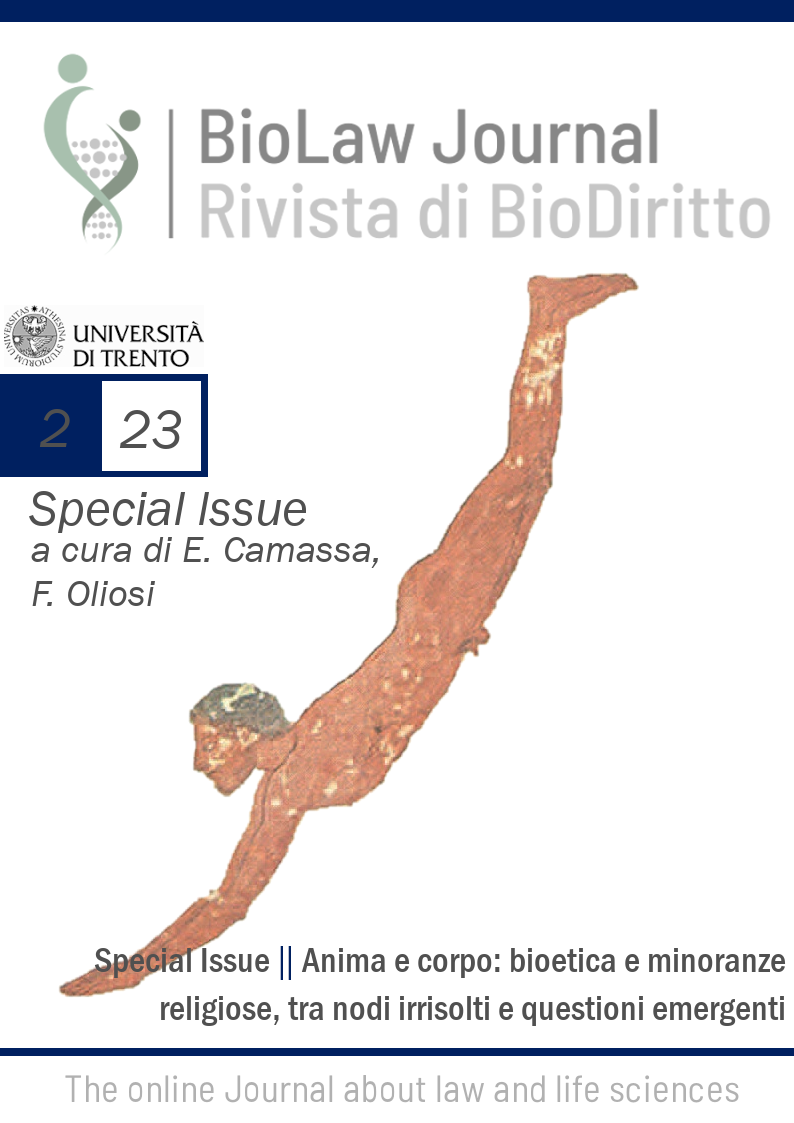The normative power of judges in bioethical and religious matters
DOI:
https://doi.org/10.15168/2284-4503-2839Keywords:
Biolaw, constitution, judiciary, Parliament, bioethicalAbstract
This article analyzes the power of judges in defining biolaw. It does so by dwelling on the jurisprudential and normative history of ethically sensitive subjects (abortion, assisted procreation, surrogacy, end-of-life), in which science and technology have led the basic notions of human life (birth, life, death, dignity, health, self-determination) to an epistemological crisis. In constitutional democracies they become a source of intense tensions, from which the need for codified state law emerges. Grappling with electoral interests, parliaments respond with tendencies ranging from inertia to partisanship. From the related normative narratives, the confrontation between different conceptions of bioethics comes out. Both secular and religious ideologies take part in the debate concerning the interpretation of constitutional principles, including those related to the theory of “constitutional originalism” and the “living constitution”. That is evident in the light of the Italian legislative and jurisprudential evolution of the last two decades, which is even more interesting when compared to other jurisdictional contexts. Those pertaining to the American Constitution are of particular interest for the present work.
Downloads
Published
How to Cite
Issue
Section
License

This work is licensed under a Creative Commons Attribution-NonCommercial-NoDerivatives 4.0 International License.





